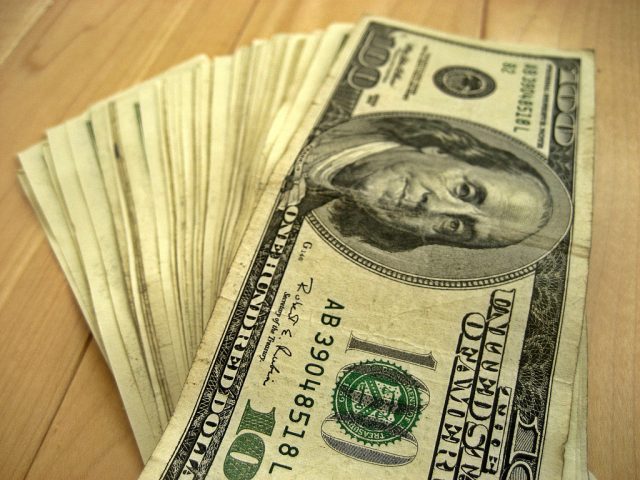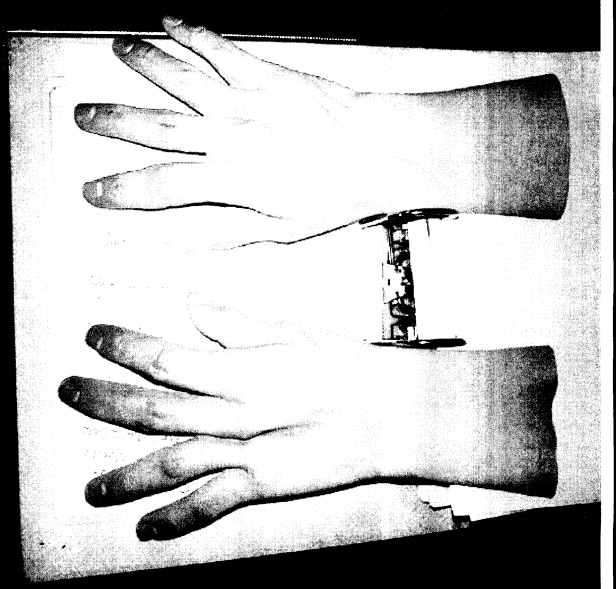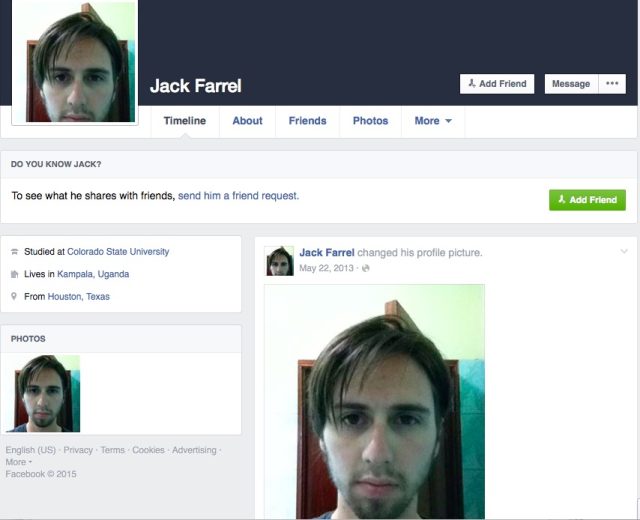
The new criminal charges expand on a previous case filed back in December 2014 against Ryan Andrew Gustafson, a man who went by the online monikers "Jack Farrel" and "Willy Clock"—he is also named as one of the four defendants. According to court records, Gustafson was previously positively identified via facial recognition against his Texas driver’s license.
Prosecutors say the 27-year-old is an American living in Kampala, Uganda, and that he is currently on trial in the East African nation on counterfeiting charges. The United States does not have an extradition treaty nor a Mutual Legal Assistance Treaty (MLAT) with Uganda, so his return home is not a sure thing.
"If he gets convicted and goes to prison, that’s fine with us; we would put his case on hold and proceed with the rest of the case," David J. Hickton, the United States attorney for the Western District of Pennsylvania, who is leading the case, told Ars on Thursday.
Prosecutors also named three other men as co-defendants: an 18-year-old Las Vegas man named Zackary Ruiz, who went by the online name "Mr. Mouse." The others include Jeremy Miller ("Sinner") of Seattle and Michael Lin ("Mr. Casino") of Bethlehem, Pennsylvania. They have been summoned to an upcoming court hearing in Pittsburgh, and if they do not appear, arrest warrants will be issued, Hickton added.
Ars conducted an encrypted chat with Clock (presumably Gustafson) back in August 2014, around the time that his associate, "Mr. Mouse," began advertising "Disney Dollars," supernotes not only on various Dark Web sites, but also more brazenly on reddit, which soon pulled the subreddit. Mr. Mouse acted as Clock’s authorized salesman.
At the time, Clock claimed to Ars that he was a Colombian man living in Peru—but he seemed to be able to speak near-flawless English.
"The business I do I was born into it, it was a family trade, it means allot [sic] to me," he wrote.
"You see, some people do this to see if they can do it, others do it to attempt to destabilize the economy, we do it for survival. I don't actually see what I do as being bad I see it as being great, the Americans sometimes will personify what I do with something bad, they will say that I am a criminal, but I do not see it this way."
A 2010 paper authored by two economists at the Federal Reserve Bank of Chicago said that counterfeiting is extremely rare. "In particular, we find that an upper bound on the stock of counterfeit currency in circulation, as a share of genuine, would still be less than 3 in 10,000," the authors wrote.
In 2013, Peru became the world’s number one source of "supernote" counterfeit bills, according to the Secret Service.
At the time, Clock argued that he was simply a sort of benevolent overlord.
"I decided to help other people and give them this opportunity, I see myself as a do gooder, I know many might argue with that, but when you get people coming to you saying they used to have NOTHING and were begging on a street corner looking for $30 and now he's a boss, sure makes me feel good," he added.
"I actually feel more of a [R]obinhood and enjoy helping people who have nothing, I create jobs.. I do better then [sic] [O]bama creating jobs my employees are all happy now."
Anon hands to the rescue!
According to court documents, Gustafson went to great lengths to conceal his operation, including the use of re-shippers in the US and the use of "Anon hands," which are like rubber gloves designed to conceal the wearer’s actual fingerprints.

His operation likely would have continued had law enforcement not detected the use of counterfeit bills in Pittsburgh in late December 2013—this is why the federal case is being prosecuted from the Pennsylvania city.
Authorities allege that beginning in December 2013, Gustafson began his own Tor-enabled website known as Community-X, which was devoted to manufacturing, buying, and selling fake Federal Reserve notes. He also began sending those fake bills back into the US. (Ruiz, Lin, and Miller, the other defendants, were members of Community-X.)
On December 26, 2013, a man was found to have successfully passed a $100 bill to purchase a latte at a Peet’s Coffee in the Oakland neighborhood of Pittsburgh and received $96.15 in actual currency in change. Law enforcement found the same man on numerous surveillance videos engaged in the same activity and eventually was able to determine that he was Joseph Graziano, who was on pretrial supervision in Pittsburgh—and had pending charges of mail fraud, bank fraud, and more.
Graziano had been receiving packages at a rented mailbox at a UPS Store, so authorities targeted that mailbox and struck pay dirt, according to a Secret Service affidavit from December 2014:
On February 21, 2014, law enforcement obtained a search and seizure warrant to open these three DHL packages as well as other mail items for evidence of counterfeiting currency.
United States Secret Service Special Agent Timothy Spiess executed this search warrant; contained inside these DHL packages were either a blank white paper or a document that purported to be a general partnership agreement. However, Special Agent Spiess found counterfeit FRNs that were located in two hidden compartments within a secondary package inside the shipping envelope. The USSS has reviewed all the bills found in these three packages and was able to determine that all the bills were not genuine US currency. In total, USSS found counterfeit $100, $50, and $20 FRNs totaling approximately $7,000 inside these three DHL packages. They matched the identifying features of the approximate $7,000 in counterfeit FRNs with those that are known to have originated from Uganda.
The packages, the blank white papers, the general partnership agreements, and a
few representative counterfeit bills were submitted for fingerprint analysis. This analysis
resulted in a positive identification; the forensic laboratory was able to find a fingerprint on the general partnership agreement that belonged to RYAN ANDREW GUSTAFSON.
Graziano later told law enforcement that he had first encountered Gustafson, as Willy Clock, on the Tor Carding Forum, where he bought $4,000 worth of counterfeit currency. Clock later invited Graziano to Community-X—but was later banned after being arrested in February 2014.
Within just a couple of months, Secret Service agents obtained access to Community-X via a confidential informant (CI-1) who began corresponding with Clock by e-mail, ICQ, and Jabber. CI-1 conducted two controlled buys in April and May 2014.
Tor users, beware
By April 2014, Ruiz, under "Mr. Mouse," began advertising on various Russian-language "carder" websites, and by August, he went as far as reddit—which is where Ars first caught wind of the story.
Eventually CI-1 became a re-shipper himself and received instructions from Clock as to how to handle packages and forward them on. By November 2014, the Secret Service executed a warrant against one of the senders of a package to CI-1—and converted him or her into an informant as well.
By mid-December 2014, the Secret Service and Ugandan authorities were able to recruit yet a third informant, but this time in Kampala. That informant conducted a controlled buy of $10,000 in counterfeit currency from Clock’s "houseboy." Local police followed the houseboy back to Clock—and Ugandan police immediately moved in to search the house and arrest Gustafson.

"I would not forecast when that’s going to be over," United States Attorney David J. Hickton told Ars. He added that he expected further charges to be brought against more individuals.
"I would say that we’re very familiar with the black internet that criminals use. We’re familiar with various anonymizing devices whether it be Tor or Tor-like networks," Hickton said. "We’re trying to meet and respond to each twist that the criminal element makes to try to hide their tracks. The Internet is a dangerous place for law-abiding citizens, but because it’s open it’s a forum where criminals can get at people and steal their identities or pass counterfeit currency."
reader comments
111